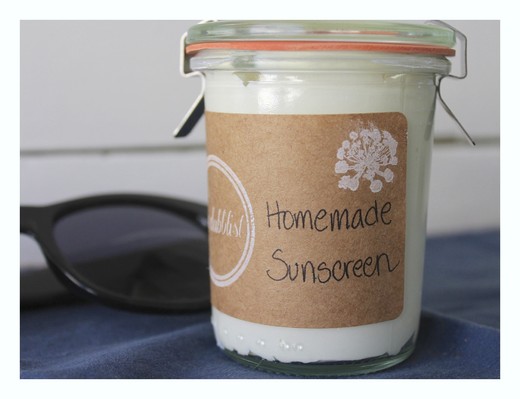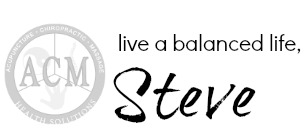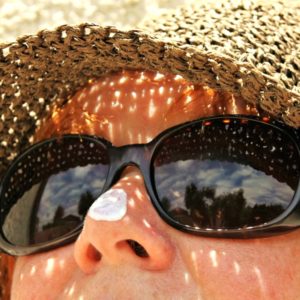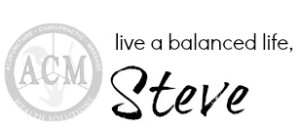-
Book Online Now - Acupuncture Solutions3900 Pebblecreek Ct #101
Plano, TX 75023972-612-4900 - 6501 Wesley St #A-1
Greenville, TX 75402903-213-3679 Learn more about…
#autumn #balance #behappy #fall #familytime #germs #healthlyliving #healthyskin #immunesystem #organs #psoriasis #seasons #sunscreen #thinkpositive acupressure acupuncture allergies anxiety coronavirus covid-19 depression diet digestion energy exercise headaches health heart herbs kidneys liver lungs meditation migraines nutrition pain pms qi sleep spring stress summer tcm Traditional Chinese Medicine winter
Summer
Don’t Forget the Sunscreen
Natural Sunscreen – A Necessity
There are pros and cons all over the internet world regarding over the counter Sunscreen and homemade DIY sunscreen. There are several things to consider when deciding whether to make your own sunscreen, here are just a few that come to mind:
- You can pronounce the ingredients (and know what they are)
- Saves a lot of money
- Doesn’t put dangerous chemicals on your skin which may absorb into the body
- It does leave a slightly white film
- The SPF is lower than the over-the-counter product, so re-apply often.
There are several and easy ways to make effective and natural homemade sunscreen. Here is one quick and relatively easy recipe:
Natural Ingredients:
1 oz. Coconut oil
8 oz. Shea butter
1 oz. Jojoba oil or sunflower oil
30 drops ( 15 of each) Eucalyptus and lavender essential oils
1 oz Vitamin E oil
Zinc oxide
The amount of zinc oxide you choose to use will determine the amount of SPF in your sunscreen. For more than SPF 20, use 20% zinc oxide, for SPF 12-19 use 15% zinc oxide.
Directions: First step is to combine coconut oil, shea butter and jojoba/sesame/sunflower oil into a Pyrex measuring up. Next, make a double boiler by placing the Pyrex inside a pot filled with 2-3 inches of water. Heat on low until the shea butter is melted. Remove from double boiler and let cool. After cooled, wear a mask to cover your nose and mouth when you measure out the zinc oxide to avoid inhaling fine particles. Add the zinc oxide, Vitamin E oil and essential oils to the original mixture. Stir until ingredients are mixed. The last step is to pour the mixture into a dark jar and refrigerate.
Homemade sunscreen can last for around 6 months and should be refrigerated. Apply generously to skin and reapply every few hours while outside during periods of sun exposure.
Sources:
http://bit.ly/28CFSal
http://bit.ly/1tuVyNa
Save Your Summertime Skin
Save Your Summertime Skin
Now is the time of year when the sun becomes irresistible. As tempting as it is to spend as much time as possible in the warmth of the sun, there are a few precautions to take to protect your skin from harmful rays.
Our skin is the largest organ in the body. It reflects our health and age. Today, there’s much concern about sunbathing leading to an increase in skin damage and skin cancer.
Excessive exposure to ultraviolet rays can increase the production of free radicals that can adversely affect the integrity of collagen in the skin. Over time, our skin becomes wrinkled, cracked, aged, and brittle. For smokers, the effects are multiplied.
Research suggests that skin cancer is cumulative over a lifetime. It begins with overexposure and serious sunburns during childhood.
We can’t live without the sun. Our bodies require sunlight in order to manufacture Vitamin D needed for calcium absorption, among other things. So, we shouldn’t hide from our shining star.
Here are a few helpful tips and precautions to take when you’re soaking in the sun this summer.
Use sunscreen – Choose a sunscreen with a high SPF number for greater protection. Apply it onto your skin 15 minutes before you go outside. Don’t forget your nose, ears, and neck.
Time is key – Avoid sun exposure when the sun is at its highest peak in the sky, typically from about 11:00 am – 4:00 pm.
Gear up – Wear a hat with a wide brim, t-shirt, and sunglasses that filter ultraviolet rays.
Drink up – By keeping your body hydrated you can avoid dehydration and provide moisture for the skin to prevent dryness, cracking, and aging.
Pop a pill – Vitamins such as A, E, and some antioxidants help prevent skin damage from the inside. Cod Liver oil and Flaxseed oil have also been used to support skin health.
Brush it off – Before you take a shower, use a dry skin brush. This can open pores and slough off dead skin, allowing your skin to breathe easily and work more efficiently.
Keep healthy – Some medications we take may have reactions and side effects when we’re exposed to sunlight. Acupuncture may be able to provide an alternative to these medications, keeping you healthy, safely and naturally.
If you want to enjoy the sun this summer season and not worry later, practice good sun sense.
You and your skin deserve it!
Relief for IBS
 Summer Heat have you and your body Irritated?
Summer Heat have you and your body Irritated?
Irritable Bowel Syndrome, otherwise known as “spastic colon,” is a common disorder that affects the colon and causes many disruptive symptoms. Many of these symptoms can be managed with a simple change in diet and lifestyle. Chinese herbal medicine and acupuncture may be able to help.
IBS symptoms may include gas, bloating, alternating constipation and diarrhea, pain, mucus, an uncomfortably full feeling and abdominal cramping. Most of these symptoms develop over time, and there is no structural or anatomical change that can be detected as cause. Doctors are unsure of the origin, though stress and diet are said to be triggers of distressing symptoms. Women suffer from IBS more frequently than men.
One of the most common diagnosis of IBS in Traditional Chinese Medicine is what is known as a “liver-spleen disharmony” due to stress. Normally, the liver is in charge of the free flow of energy (or vital force), blood and oxygen to the spleen and stomach, the organs who do their job of digesting food by transporting and transforming food and descending energy downward. When the liver energy becomes stagnant through emotions such as stress, frustration, anger, moodiness and tightness in the body (the liver is sensitive to these emotions), this encumbers proper digestion and what can result is acid, belching, nausea, abdominal distention and bloating. Diarrhea or constipation can occur or irregular bowel movements. Other common symptoms of stagnant liver energy are PMS, cramping with clots and irregular menses. Easing stress would be the most important aspect of the treatment plan to get to the root of the issue.
Another common cause of IBS is food sensitivity. Eliminating trigger foods has been shown to help symptoms tremendously. Here are some things to consider eliminating:
Too many cold, raw vegetables: Eating too many cold, raw vegetables dampens the digestive fire and leads to malabsorption. Cook vegetables instead and eat them warm.
Cruciferous vegetables and legumes: These are healthy but can cause gas and bloating in sensitive individuals.
Dairy: Lactose intolerance can lead to digestive ailments. If you aren’t sure, try eliminating dairy such as milk, yogurt and cheese.
Eating fast, while angry or hurried: When you eat or drink quickly, you might be inhaling too much air and eating too much. Eat slowly and mindfully.
Other triggers: Sensitivities might include chocolate, carbonated drinks, artificial sweeteners, caffeine, greasy food or processed food. Hormonal changes could also be a factor in increased IBS symptoms.
How to know for sure? It is best not to self-diagnose symptoms, so see your medical provider to see if you have IBS and not something more serious. Your Chinese medical practitioner can help you by diagnosing the symptoms according to a more eastern perspective, administering acupuncture and perhaps prescribing an herbal formula, and adjusting your diet to eliminate triggers that are irritating for your particular constitution.
Some remedies for IBS include; acupuncture to improve flow in the abdomen and ease stress, herbs, increasing fiber (gradually, or it could worsen symptoms), massaging the abdomen (9x clockwise, 9x counter-clockwise), exercise to move things around such as tai qi or qigong, and probiotics to increase good bacteria in the stomach. Peppermint, magnesium, and chamomile can soothe and ease symptoms.
The Many Dimensions of the Heart
 The Heart – the Universal Energy of Summer
The Heart – the Universal Energy of Summer
The heart is an energetic system we often treat in Traditional Chinese Medicine. According to Chinese Medicine theory, there are many systems of energy within the body. Each of these systems corresponds to certain physiological and psychological functions. So when we talk about the heart, the lungs, the liver. However, when we are speaking about Chinese Medicine organs, we are not talking about the physical organ sitting in your body, but rather the energetic manifestations of a particular system in the physical, mental, emotional and spiritual realms.
The heart is an incredibly important energy system in Chinese medicine, often said to be the emperor of all the other energy systems. It is related to the fire element, which is the universal energy of summer.
On a physical level, the heart is responsible for pumping blood through our body, just as it is in allopathic medicine. It controls the health and vitality of the blood vessels, and also controls sweating, the tongue and speech. But perhaps the most important role of the heart in Chinese medicine is that it houses the Shen, or spirit.
The Shen in Chinese Medicine is referred to as one of the three treasures of the body, and it encompasses consciousness, the emotions, mental acuity and thought, as well as the ability to process incoming sensory information. Each organ system in Chinese medicine is related to one aspect of the spirit (such as intellect, willpower or instinct) – but the Shen is the most important, as it governs all the other aspects. Prolonged emotional upheaval, mental illness, personality disorders, emotional imbalance, processing disorders and sensory disorders all are manifestations of a disturbed, ungrounded or weakened Shen.
The emotion associated with the heart is joy. This means that joy nourishes the heart, but excessive joy (ie, mania) is a symptom of an imbalance in this system.
The heart is all about the very act of being alive – from the physical heart beating in our chest, to the flow of blood through our veins, to our mental ability to stay present and focused, and our emotional selves being whole and complete. It is the energy of summertime – abundant, hot and lively.
Nourish the Heart through Food
The color associated with the heart is red, and the heart is nourished through red foods, such as cherries, strawberries and kidney beans. Being closely associated with the blood, it is also nourished by blood-tonifying foods such as organ meats, lean red meat and dark leafy greens. The heart is closely tied to appreciation of beauty and aesthetics, so the heart system is also nourished by food for which care has been given to present artfully, with beauty and grace, and a wide array of colors on one plate. Again, the heart is associated with summertime, so think of the abundance of fruits and vegetables available that time of year, and try to reflect that energy in your food choices.
Nourish the Heart through your habits
The heart is nourished through activities that bring you cheer and joy. Nourishing the heart is about celebrating that which you love in the world – people, places and ideals. As the heart governs our relationships with other human beings, it is nurtured by feeling connected to those that we love. Reach out to friends and family, forge new bridges and strengthen lasting bonds. The heart is also nourished through beauty – take time to appreciate the beauty of your natural surroundings, as well as music, poetry, art and dance. Lastly, the heart is nurtured by ritual. This can be a long-standing religious or cultural ritual, or one that you create for yourself. Some examples of heart-healthy rituals include writing down five things you are grateful for each night, incorporating some sort of gentle exercise during each morning, practicing 10 minutes of sitting meditation each day, or grab a coloring book and start coloring!
Foods to Improve Heart Health
Wonder how you can help your heart stay in balance? Well, what you put into your body goes a long way in determining how balanced you are. Check out some of these foods you should consume in order to promote good heart health.
Red foods have been shown to help the heart biochemically; foods such as hawthorn berries, strawberries, cherries, raspberries, tomatoes, watermelon, peppers and goji berries keep your heart happy with lycopene and anthocyanin, antioxidants and beneficial vitamins.
Other helpful foods include garlic, cayenne, cilantro, basil, magnesium (found in leafy greens, nuts and soy) and green tea. Also try ginseng, jujube dates, reishi mushrooms, dong quai, seaweed and schizandra berries.
Orange vegetables like carrots have carotenoids and lutein, powerful phytonutrients. And oranges, the fruit, can help decrease your risk of heart disease.





